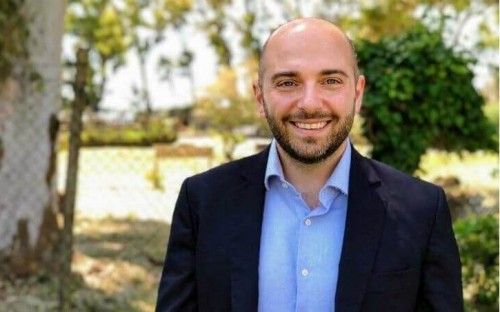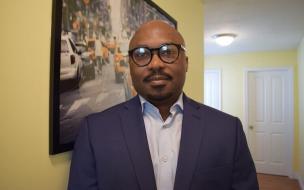Jet-lagged and in a country where she didn’t yet speak the language, she was taking the first steps on her Hult International Business School journey.
“That was the day I knew I would stay longer in China than I had anticipated,” she says.
Raissa, who is originally from Brazil, left behind Washington DC in 2015, where she’d been working, for a Masters in International Business degree in the heart of China. She was after a bigger world view, and the augmentation of her business skillset to compliment the soft skills she’d developed during her undergraduate days.
That, she says, is what Hult offers—a gateway to the wider world; a pathway to where the future of business lies. Students at Hult have the option of studying in London, New York, Boston, San Francisco, Shanghai, and Dubai.
“The vision the school has is to bring the industries of the future into the classroom, and that can be seen by the quality and diversity of the professors and student body. My experience was ‘East meets West’,” Raissa explains.
Raissa adds that she has always wanted to work with technology. Her time in DC was spent looking across the US at the expansion of Silicon Valley. But, for Raissa, it’s more than that—technology offers an opportunity to give something back to region you’re from.
After her Master in International Business at Hult in Shanghai, Raissa moved to China’s tech hub, Shenzhen, and landed a job with DJI, one of the world’s leaders in drone and aerial camera technology.
She’s the regional manager for Latin America, and works out of Shenzhen with clients from Mexico, to Brazil, and Chile. “The way Hult has prepared me for it is through living with strangers from different countries for a year. Living with people from so many backgrounds has given me the flexibility to understand our differences,” she says.
Raissa is not alone. Claudio Sperindio, a 2018 graduate from the Executive MBA (EMBA) at Hult, echoes her when he talks about the way the school prepares you to go beyond business.
Claudio came from the oil and gas industry and needed an executive education to propel him up the career ladder. He chose London as his home campus but rotated to Boston and New York during his degree.
He had travelled the world before he arrived on the EMBA, working in North America, Europe, and the Middle East and Africa. He says that Hult brought him out of his shell and introduced him to the connections who would form the basis of his career after graduating.
“Most engineers, we are introverts,” he explains, “and with the EMBA you have the knowledge to feel more comfortable with yourself when you talk about business with someone.”
Claudio adds that the EMBA developed his ability to form professional relations. Leadership modules also opened his eyes to different approaches when tackling real-time challenges at work.
After graduating, he became a freelance international business development consultant within the oil and gas sector. Together with connections he made at Hult International Business School, he has also launched his own startup this year—Oilchain—a venture he describes as a blockchain platform for the oil and gas industry.
The finance sector has been equally disrupted by technological advances, something Espen Myklebust (pictured below, right) is discovering in his role as country manager for alternative mobile banking app, Revolut, in Norway.
Espen, who completed his Master of International Business degree at Hult in London this year, says that the practical approach to learning at the school ensured he was ready-made for Revolut after graduating.
He adds that he also learned from the Career Development Team the importance of a proactive attitude when pursuing job opportunities.
“When you’re from Norway we don’t usually put ourselves out there,” he says. “People generally just apply for a job and hope they get an interview.
“In England, there’s a very different approach; people try to ask businesspeople for a coffee to get to know them. The Hult Career Development Team really taught me how to actually go and hack yourself into companies by actively going and finding decision makers of the company and making sure they know you.”
After finding out about Revolut from his peers at Hult—everyone he came across seemed to be using it—he started to seek out the decision makers. Already knowing a Norwegian who was passionate about the company would stand Espen in good stead when it came to career opportunities.
Hult International Business School’s approach to personal development ultimately enabled him to land where he is now.
While at the school, he helped organize a TedX event, bringing in speakers from across a variety of industries and backgrounds. There was someone who’d rowed solo across the Atlantic, one of the head curators of the Tate Modern, and a representative of Amnesty International.
“It specifically taught me about landing sponsorship, selling ideas, and how to approach corporations,” he explains. “We talked to many organizations to get support, and although a lot said no those who said yes helped us get to where we wanted to be.”









